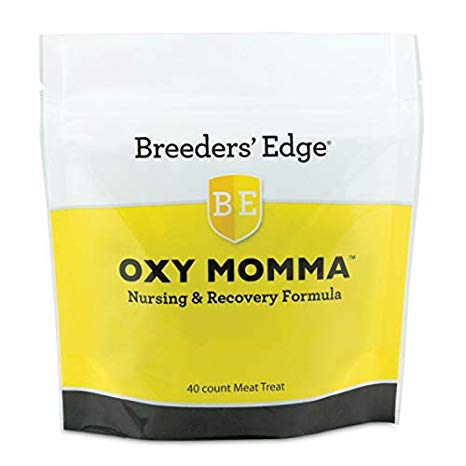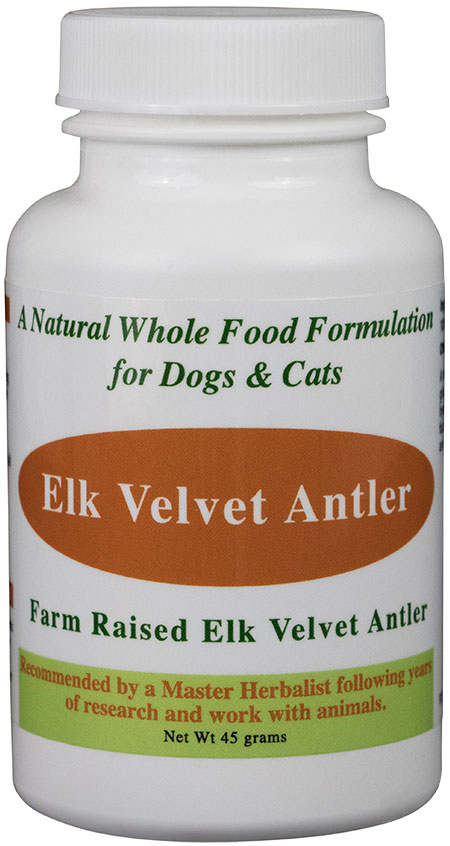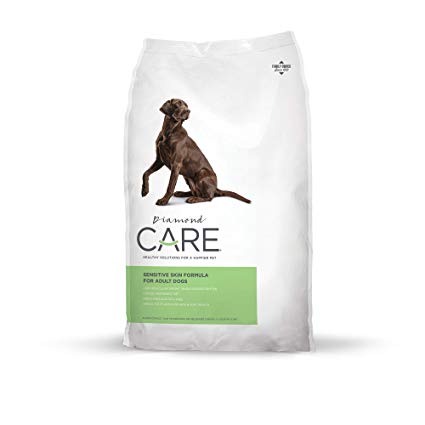What is Epakitin Supplement for Dogs?
Epakitin supplement for dogs is a drug with a lot of nutritional benefit for your dog’s health. It contains ingredients that can help in slowing down the progression of chronic kidney disease in your dog. Epakitin is sold in its powdered form. It can be used either by mixing it in a prescription renal diet or by mixing it in your dog’s regular food. The drug provides essential support for the optimal functioning of your kidney. If you would like to buy Epaktin Supplement for dogs please click here
Chronic Kidney Disease in Dogs
Kidney disease is a common disease that affects dogs as they start growing up, and it has been estimated that 1 out of 10 dogs is prone to suffer from the disease. Therefore, kidney disease is a serious topic that all dog owners should be aware of. So that a passionate dog keeper like you can know just what to do when it affects your dog.
The kidney is a vital organ in the body of mammals, and it comes in a pair of two. The kidney is needed for;
· Filtering the blood
· Processing of protein waste and converts them to urine for excretion
· Helps to keep normal red blood cell in balance
· Conservation and balance of body water, salts, and acids
Kidney problems start to occur when one or more of these functions and processes begin to get compromised or reduced. The bad thing is that this unfortunate situation goes on for a while without been detected until the kidney becomes severely damaged and performs at a deficient capacity of around 33% to 25% of their average capacity. Most dogs who suffer from moderate to severe chronic kidney disease are often prone to suffer from frequent dehydration, loss of appetite, and in some cases, you will notice that your dog is lazy. Extreme cases of kidney disease are very bad for your dog because kidney transplant in dogs is not common. So the only thing that can be done is to treat symptoms. The best way to protect your pet from kidney disease is to be prepared to find problems early.
Causes of Chronic kidney disease in Dogs
A group of veterinary specialist called ‘the international renal interest society or IRIS’ is dedicated to the study of kidney disease that affects dogs and cats. They released numerous factors that make dogs susceptible to kidney disease which includes;
· Age (older dogs are at a higher risk to suffer from kidney disease)
· Breed of the dog
There are also other reversible factors that speed up kidney damage in dogs. These factors include;
· Cancer
· Genetic problem (Hereditary nephropathies)
· Leptospirosis
· Tubulointerstitial disease ( this affects kidney tubules)
· Glomerulonephritis
· Kidney infection (pyelonephritis)
· Kidney (Nephrolithiasis)
· Ureteral obstruction and hydronephrosis ( stones that lead to blockage)
· Protein problem (Amyloidosis)
Signs and Symptoms of Chronic kidney Disease in Dogs
Part of the earliest signs of kidney disease that you will notice in your dog is increased urination and intake of water (caused by dehydration) – polyuria/polydipsia or PU/PD. Usually, dogs need to urinate at night (nocturia). Several other factors cause PU/PD; however, kidney disease is the most serious of them all (which concerns us). Withdrawing water from your dog can worsen chronic kidney disease, so you have to consult from your vet doctor before you do so. One important thing to take from all this is that you should call on your vet doctor the moment you start to notice increased water intake and unusual urinating in your pet. Dogs are very sensitive, so small changes can lead to signs of illness.
Others signs of chronic kidney disease you should look out for include;
· Dehydration
· Vomiting
· Oral ulcers
· Inconsistent urinating (urine leakage)
· Lethargy
· Loss of weight
· Bad breath
· Pale appearance
It is important that you take immediate action to examine your dog for chronic kidney disease. Usually, your veterinarian will suggest 3 different test;
Physical test/examination – the first step your vet will take to examine your dog for chronic kidney disease is to perform a physical examination. Also, note that taking your dog for periodic physical examination is a good practice because you will be able to discover any sudden changes, even if it is not related to kidney disease. Furthermore, during the physical examination, you might detect:
· Enlarged, painful kidneys
· Change in the urinary bladder or prostate
· Back pain
Performing a rectal examination will give more information on the chances bladder, urethral, or prostatic disease. Other findings that point to kidney problems, and these includes:
· Dry gums (caused by dehydration)
· Over tenting of the skin
· Unkempt hair coating
· Low body temperature
Other testing/ examination includes
1. Complete blood count (CBC) – the CBC testing may reveal that your dog is suffering from anemia (lack of sufficient red blood cells). In addition, it can also reveal an increase in the concentration of white blood cells that contains infection, inflammation, or stress.
2. Urinalysis with sediment exam – this is a simple and economical way to evaluate a urine quality. It should be done before any treatment is given.
3. Popular infectious testing/examination – periodic testing for heartworm infection and for diseases such as Ehrlichiosis and Lyme that is being spread by vectors can help in identifying the risk of kidney disease
4. Measurement of blood pressure – high blood pressure is a common thing with dogs with high blood pressure
5. Image diagnosing- x-ray (radiography) imaging and diagnostic ultrasound to investigate any change in the size, model, and shape of your dog’s kidney can point out a specific blockage that needs to be treated immediately
6. Electrolyte and chemistry profile
7. Urine protein to creatinine ratio
8. Sampling of kidney
Management and Monitoring of Chronic Kidney Disease
Dogs showing signs of kidney disease, which includes dehydration are mostly in need of intensive care and treatment in a hospital, while those who can still play about can be treated from home. Your vet doctor will study the situation to determine the best treatment for dog’s kidney disease and make an individual recommendation.
General treatment for dogs with kidney Disease
· Nutrition – it is important that you provide appropriate and sufficient nutrition that is rich in kidney diet. (Epakitin supplement)
· Hydration – Ensure that your pet is adequately hydrated.
· Ensure balanced salts and acid-base levels in your dog.
· Serious treatment of high blood pressure or any protein issues because these conditions can deteriorate kidney damage.
· Providing sufficient freshwater – this is crucial!
Note: dogs suffering from kidney disease will always be in need of extra trips outside for bathroom breaks
Why you should use Epakitin Supplement for Dogs
There are many supplements available for the treatment of kidney disease in dogs. However, Epakitin supplement stands out for various reasons, and it is popular among many dog owners and vets.
Epakitin is a great tool for managing advanced kidney support in dogs. It helps slow down the dangerous and destructive cycle of chronic kidney disease. It is a chitosan-based nutritional supplement, and it works by binding with phosphate found in the intestinal tract to reduce phosphatemia related to chronic kidney disease. Studies reveal that phosphatemia can be reduced by giving your dog a diet that is low in phosphorus or the addition of phosphate binder to increase life expectancy.
With Epakitin, your pet will begin to regain its strength and energy. Continuous usage will make your dog feel healthy again, and live longer.
Features and Details
· It provides the best nutritional support for dogs that is needed to slow down the growth of kidney disease
· It has a great taste that your dog will love, and it comes in powdered form that is easy to administer. All you need do is sprinkle it over dry food or small quantity of canned food
· The active ingredient in Epakitin is chitosan – a natural polysaccharide gotten from shrimps shells and crabs. This ingredient works on phosphorus to help dogs suffering from chronic kidney disease by slowing down the damage
· It can work as a good phosphate binder
· It can be administered throughout a lifespan
· There is no report of a side effect
Ingredients in Epakitin
· Lactose
· Calcium Carbonate,
· Chitosan (active ingredient)
· Hydrolyzed Soy Protein
GUARANTEED ANALYSIS:
Crude Protein – 2.8% min
Moisture – 1.35% max
Crude Fiber – 10.0% max
Ash – 2.0% max
Calcium – 3.7% min
Crude Phosphorous – 0.0008% min
Potassium – 0.0245 min
Feeding Instructions
· 1g /11 lbs body weight should be orally given in the morning and the evening. 1g of Epakitin is present in every 1 level spoonful (provided with the product) of the 60g & 180g jar
· 1g/5kg body weight given orally in the morning and the evening mixed with food. One level spoonful (provided) of 300g jar contains 2.5 grams of Epakitin.
Allow your dog to have access to freshwater while administering Epakitin. Usage can be life long because this is a nutritional supplement.
CAUTIONS:
· It has not to proven safe or otherwise in pregnant dogs or dogs intended for breeding
· If your pet’s condition does not improve, stop administering supplement and consult with your veterinarian
 Total Pooch Dog Supplements, Tear Stain Removers, De-wormers, Tylosin for Dogs and other great products.
Total Pooch Dog Supplements, Tear Stain Removers, De-wormers, Tylosin for Dogs and other great products.



